The India-US nuclear deal will stunt India's emergence as a genuine nuclear weapon state, cripple its strategic deterrence, and reduce it to a US satrapy. Government's motivations in pushing ahead with it are, therefore, open to speculation, particularly as informed opinion is against it.
Government has stymied a sense of Parliament resolution, designed to have set the basic parameters for the nuclear deal, on the grounds that the move was premature, since the related US legislation had still to be finalised and that, in any case, it would ensure that the deal would remain within the framework of the July 18 understanding. This line of argumentation is unconvincing. The July 18 understanding, even if implemented as is, would irreparably compromise our nuclear programme, both V jivil and military, and place us squarely under the US yoke. Moreover, this understanding has been changed out of all recognition, over the last one year, in a manner adverse to India. Government, if not actually complicit in such changes, has been incapable of thwarting them.' A sense of Parliament resolution would have helped put some spine into the government and would have signalled to the US Congress the immutable red lines which must not be crossed in drawing up the legislation on this issue. Government's stubborn resistance to a sense of Parliament resolution has clearly been motivated by fears that this would curtail its wriggle room to make further concessions.
The July 18 understanding, conceived in stealth and without a national debate, is intrinsically flawed, because many of the responsibilities being assumed under it by India have not been assumed by other nuclear weapon states. Thus, neither the separation of civil and military nuclear facilities nor the placement of all of the former under IAEA safeguards, as agreed to by us, is the norm for nuclear weapon states. Separation would have to extend to personnel, materials, equipment etc., and in addition would require that nuclear weapon relevant information is not transferred from safeguarded to unsafeguarded facilities. These onerous obligations will cost us dear in financial terms, as well as in the evolution of our nuclear programme — both military and civil. Furthermore, since our moratorium on testing is a part of the deal, it forecloses in perpetuity our option of effecting nuclear warhead design improvements through this route even if other states including Pakistan resume testing.
The July 18 understanding has been justified on the grounds that it would help us vastly enhance nuclear power generation, not possible otherwise due to the paucity of locally available natural uranium. These arguments are specious, as there is sufficient uranium in India to fuel all 22 of our ongoing and programmed nuclear reactors, through their entire lifecycles, as well as maintain our nuclear weapon development programme. Indeed, the DAE has projected that we could generate over 200,000 MW of nuclear power by 2050, based entirely on indigenous reserves of thorium, which are the largest in the world, and natural uranium. Moreover, nuclear power generation based upon imports will be much more expensive than the indigenous option. The latter, which should have been prioritised, will now be placed on the back burner, as the bulk of our resources will be allocated for costly imports.
The July 18 understanding has been justified on the grounds that it would help us vastly enhance nuclear power generation, not possible otherwise due to the paucity of locally available natural uranium.These arguments are specious, as there is sufficient uranium in India to fuel all 22 of our ongoing and programmed nuclear reactors, through their entire lifecycles, as well as maintain our nuclear
weapon development programme
Finally, nuclear energy which currently accounts for only 3% of India's power generation can never be critical for its energy security which can be better ensured by turning to alternate sources of energy and methodologies which would be cheaper, safer and more effective.
The nuclear deal has gone from bad to worse in the process of its being fleshed out. Contrary to government's assurances India has had to accept in perpetuity safeguards, separation has not been decided "voluntarily, solely on the basis of our own judgment," but on the basis of prolonged negotiations resulting in the placement of the bulk of our facilities in the civil list, "current and future strategic needs and programmes" have been disregarded as borne out by the decision to close the recently refurbished Cirus research reactor, which produces 30% of our weapons grade plutonium, and to place 65% of our reactors under safeguards, which will reduce tritium production by 65%, safeguards are to precede and not come after the lifting of all restrictions on India, and civil nuclear cooperation is to be less than "full" as the US will desist from nuclear exports in the areas of enrichment, reprocessing and heavy water production. An already blighted nuclear deal will become even more pernicious under the impact of the US legislation under consideration. Some of the more disturbing features of this legislation are as follows:
- US nuclear civil cooperation with India to be contingent on annual presidential determinations on India's good behaviour on the entire range of proliferation related issues.
- US not to engage in cooperation with purely Indian programmes related to uranium enrichment, reprocessing of spent fuel and heavy water production, and to work with NSG members to further restrict such transfers.
- India to be debarred from testing and encouraged to indicate a date when it would stop producing fissile material for weapons.
- India to support US efforts, in addition to international efforts, to prevent spread of enrichment and reprocessing technology. This, inter alia, requires India's "full and active participation" in US efforts to "sanction and contain" Iran.
- India to participate in the US created Proliferation Security Initiative (PSI) and to conform to Australia Group and Wassenaar Arrangement guidelines in addition to MTCR and NSG guidelines which alone had been agreed to as per the July 18 understanding.
- India to face highly intrusive accountancy in regard to US nuclear related transfers including end use inspections in addition to IAEA safeguards.
- Constant surveillance to be exercised on India on all nuclear related issues through a series of annual reports including on Indian production of natural uranium, fissile material, weapons etc. This gives the lie to the contention that the deal is only concerned about civil nuclear energy.
It is amazing that apologists for the deal have enthusiastically greeted the passage of the Bills containing the aforesaid obnoxious provisions. Passage of this legislation by such large majorities in the House and Senate Foreign Relations Committee is proof enough, if any was required, that it satisfies a variety of US demands on India, designed to erode its nuclear weapon capability and to reduce it to a subsidiary state which would have to abide by the US diktat.
Why then is the Indian government so gung-ho in concretising this shady deal? Does not prudence demand a re-examination of the desirability of rushing into it, given the widespread opposition to it and the fact that future generations will be saddled with its consequences? Is it not perplexing that a weak minority government which dithers on the simplest of issues, and is prone to appoint commissions and committees on virtually every problem under the sun, should choose to swim against the current on so knotty an issue? Queries such as these inevitably give rise to speculation, most of it naughty and not particularly flattering to government, about why it is hell-bent upon forcing as unmitigated a disaster as the nuclear deal down the throat of an unwilling nation.
The article is a joint contribution from Satish Chandra, Ajit Doval and Vikram Sood, former heads of the National Security Council Secretariat, Intelligence Bureau and R&AW respectively. All belong to the Policy Perspective Foundation — a newly established think tank

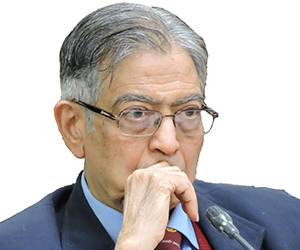


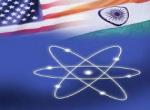
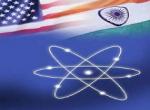


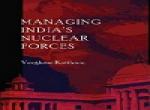
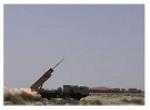
Post new comment